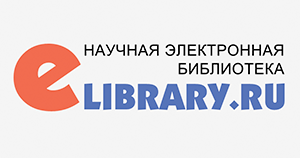Click to go to the English version of the site"
Нажмите на эту строку чтобы перейти к Новостям сайта "Русский врач"
Журнал включен в российские и международные библиотечные и реферативные базы данных
|
РИНЦ (Россия)
RINZ (RUSSIA)
|
Регистрационное агентство DOI (США)
DOI Registration Agency (USA)
|
Эко-Вектор (Россия)
Eco-Vector (Russia)
|
Ulrichsweb (Ulrich’s Periodicals Director
|
The role of the motivational component of learning in improving the quality of education
DOI: https://doi.org/10.29296/25879979-2023-07-03
Issue:
7
Year:
2023
The article discusses the motivation of students as a guarantee of quality medical education. To improve the quality of education, it is necessary to improve the methods and forms of teaching and management of educational and cognitive activities, an integrated approach is needed, including the impact on three components: motivational, cognitive and managerial. It is extremely important to influence the motivational component of educational activity, while special attention should be paid not only to external, but also internal motives of educational activity. The ability to influence the system of personal motives and, consequently, the quality of education is an important component of pedagogical skill.
Keywords:
students
motivation
quality of education.
References:
- Kudryavaya N.V. Psychology for doctors / Edited by Prof. Kudryavaya N.V. Moscow: GEOTAR Media. 2007; 400.
- Aismontas B.B. Pedagogical psychology: Schemes and tests. Moscow: VLADOS-PRESS Publishing House. 2004; 208.
- Shamilov M.D. Influence of motivation of medical students on the quality of education. Medical Nurse. 2022; 24 (6): 16–19.
- Bozhovich, L.I. Problems of personality formation: izbr. psychol. works / L.I. Bozhovich; ed. D.I. Feldstein. 2nd edition, stereotype. Moscow: Izdvo «Institute of Practical Psychology»; Voronezh: NPO «MODEK». 2009; 55–91.
- Amlaev K., Dakhkilgova H. Measures to improve health literacy. Physician. 2018; 29 (12); 83–87.
- Khabibulina M.M. Development of creative thinking in students of medical university. Bulletin of the Ural State Medical University. 2020; (4): 22–23.
- Borovskaya N.V., Rean A.A. Pedagogy: textbook. St. Petersburg: Piter. 2016; 304.
- Glukhanyuk N.S., Semyonova S.A., Pecherkina A.A. General psychology: textbook for universities. Moscow: Academic Project; Yekaterinburg Delovaya kniga, 2015; 3rd ed. supplemented and revised. 368.
- Gordeeva, T.O. The questionnaire «Academic motivation scale» / T.O. Gordeeva, O.A. Sychev, E.N. Gordeeva. Sychev, E.N. Osin. Psychological Journal. 2014; 35 (4): 98–109.
- Amlaev K., Khoroshilova E. Management of socioeconomic determinants of health at different levels. Physician 2018; 29 (1); 85–87.
- Habibulina M.M. Activity of a teacher in the process of education. Medical Nurse. 2022; 24 (4): 31–33.
- Ilyina, T.I. Metodika izucheniya motivatsii uchenii v vuzu [Electronic resource]. Mode of access: http://testoteka.narod.ru/ms/1/05.html
- Shamilov M.D. Opinion of students and patients about professional qualities of a doctor. Medical Nurse. 2022; 24 (8): 32–34.
- Chernyadiev SA, Ufimtseva MA, Getmanova AV, et al. The role of NEW MEDIA in the education of medical university students. Modern science-intensive technologies. 2016; (2–3): 589–592.
- Khabibulina M.M. Pedagogical methods of optimization of educational process in medical university. Vestnik USMU. 2022; 56 (1): 68–71.
- Amlaev K.R., Bakunts S.A. Difficult communications with patients. Physician. 2021; 32 (12): 11–17.
- Reznik S.D. The university teacher: technology and organization of activity: Study guide. Edited by Prof. Reznik S.D. Moscow: INFRA, 2009; 389.




